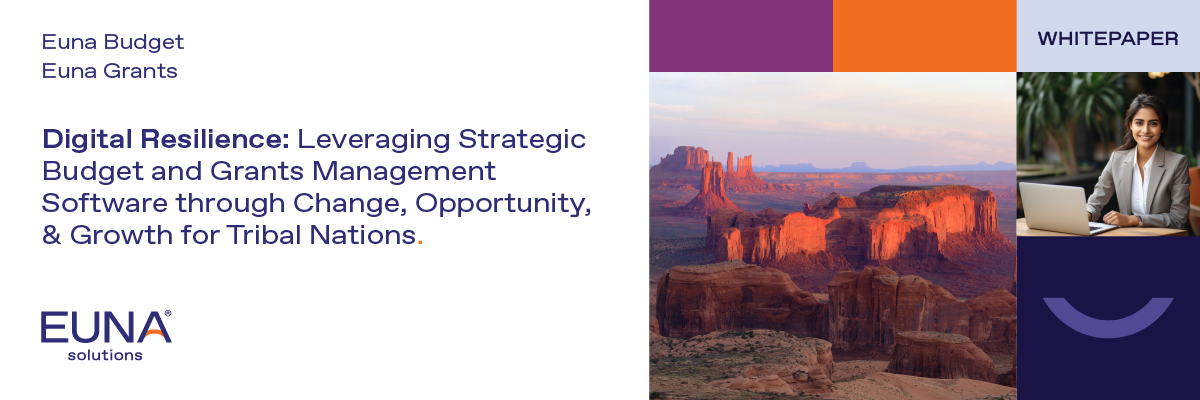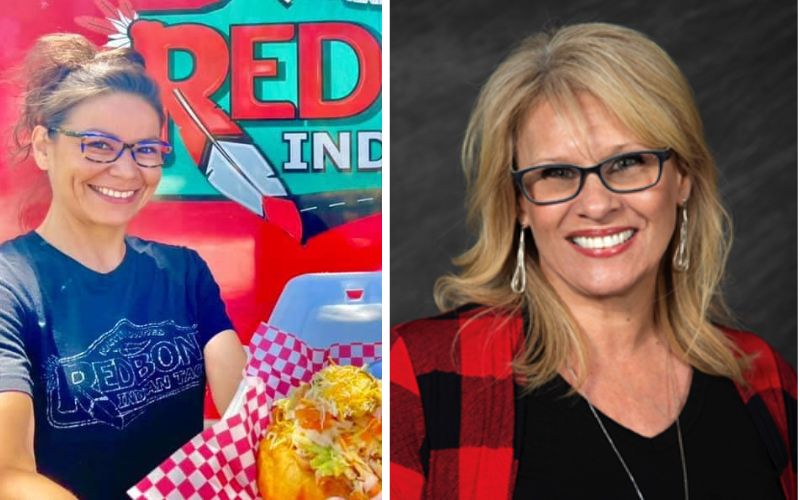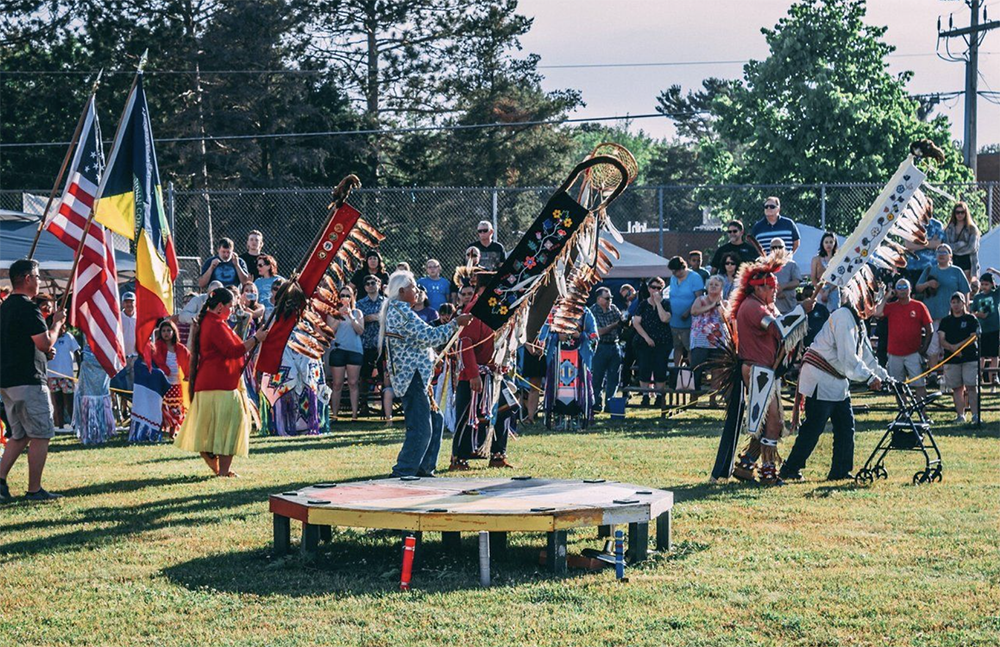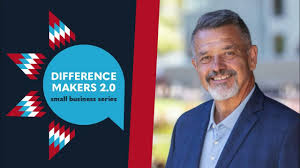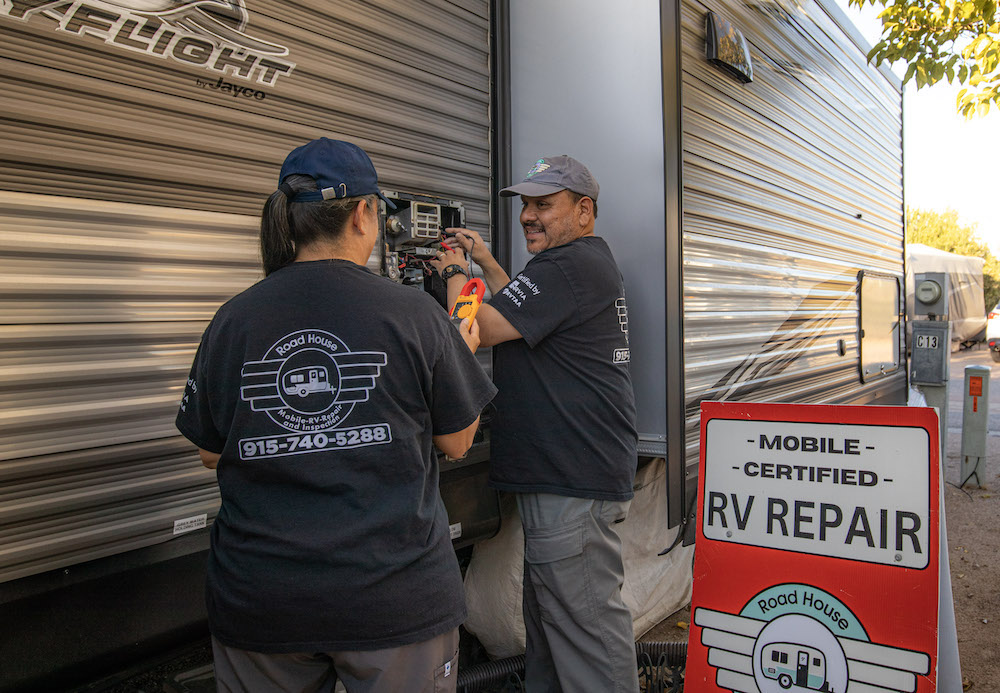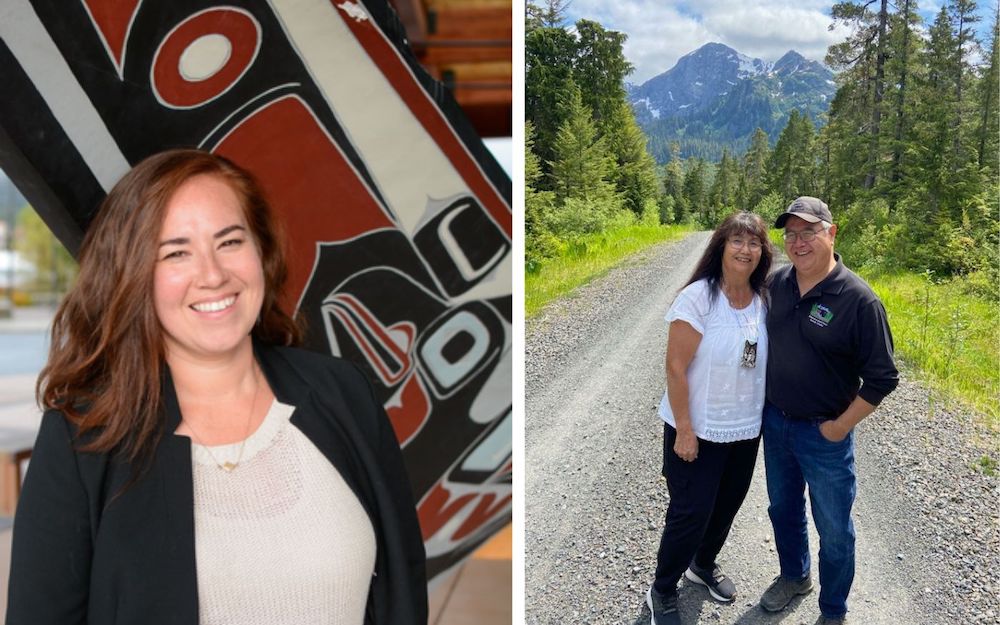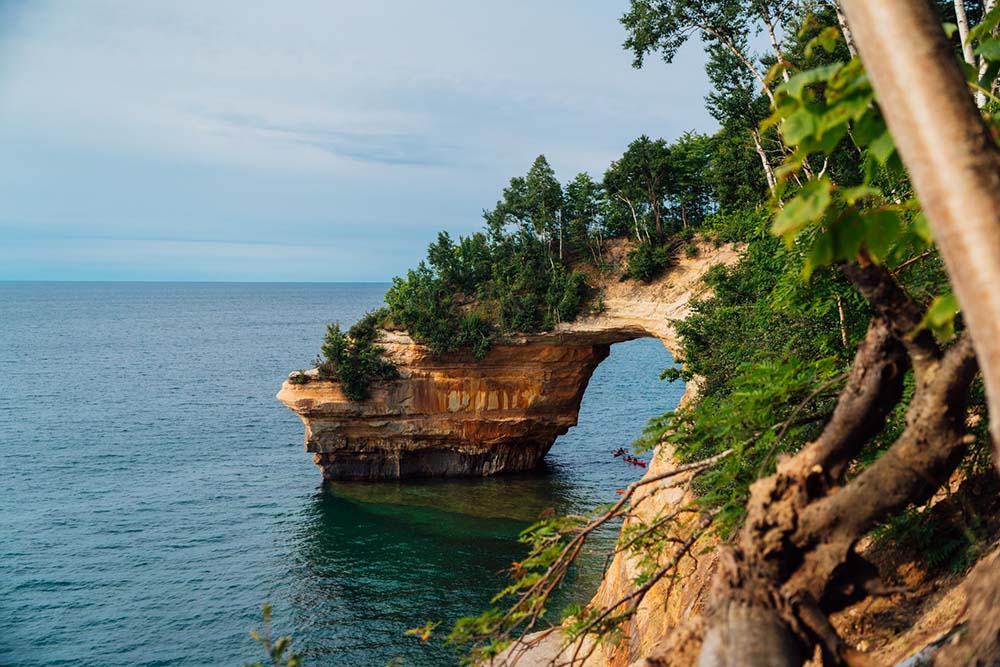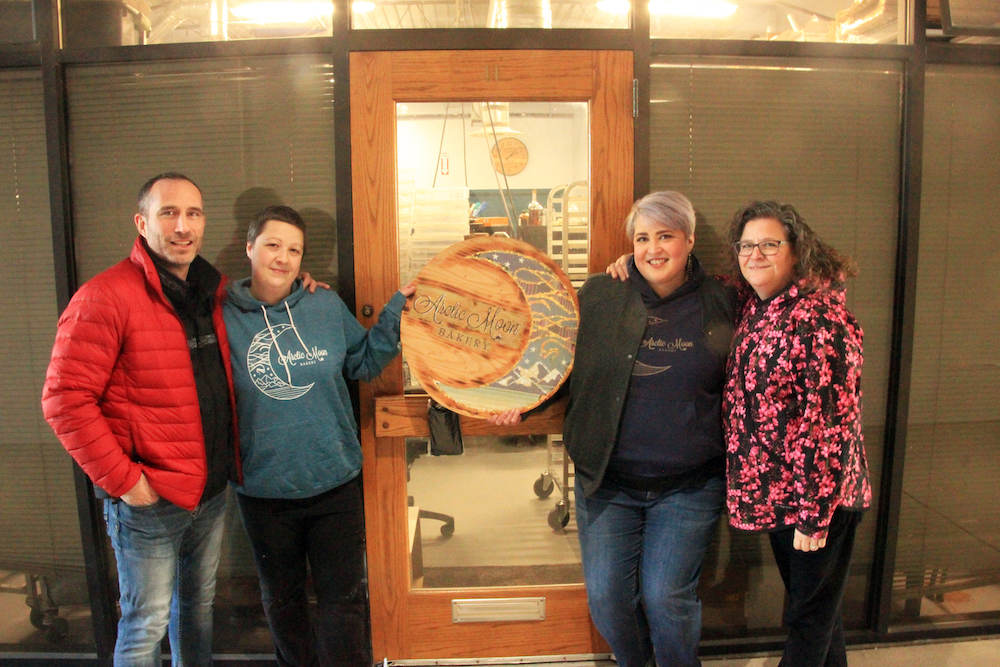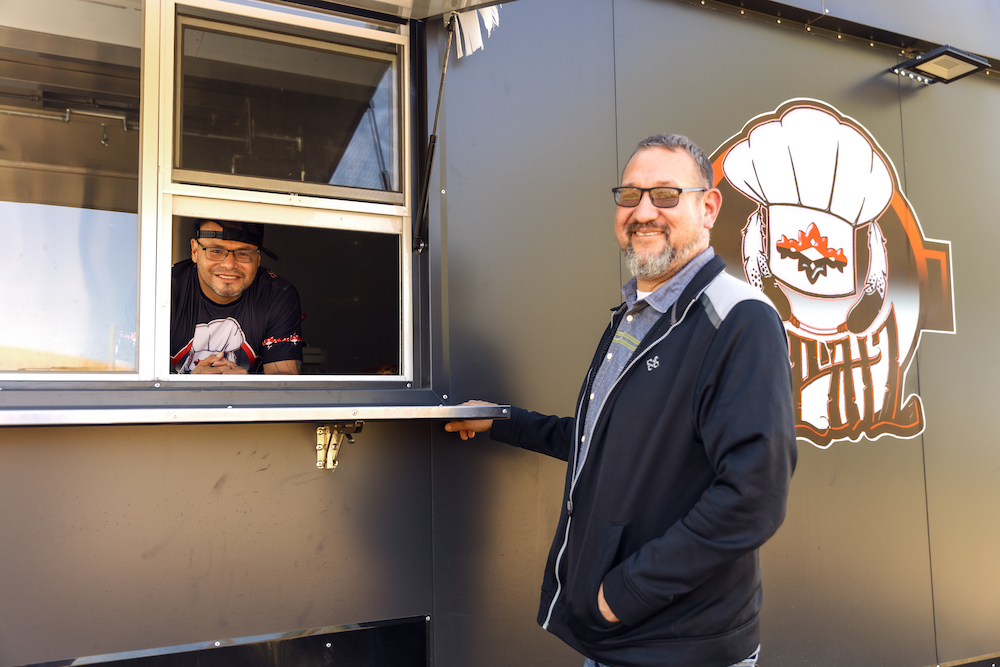Sponsored Content
- Details
- By Euna Solutions
- Sponsored Content
- Type: Default
- Paywall Status: Free
- Reader Survey Question: No Question
In the pursuit of self-determination and economic prosperity, Tribal Nations face unique financial challenges and opportunities.
- Details
- By Tribal Business News Content Studios
- Sponsored Content
- Type: Default
- Paywall Status: Free
- Reader Survey Question: No Question
Kelly Price learned the art of Native traditions at her grandmother’s side in Oklahoma. Growing up in Medicine Park and later Lawton, she was shaped by the deep influence of her elders — her grandmother, a full-blood Kiowa and grandfather, a full-blood Comanche.
- Details
- By Michigan Economic Development Corporation
- Sponsored Content
- Type: Default
- Paywall Status: Free
- Reader Survey Question: No Question
Located in Chippewa County in Michigan’s Upper Peninsula, the Brimley Bay Mills Farmer’s Market features space for up to 70 vendors selling fresh produce, meats, Native American artwork, and more. Operated by the Bay Mills Indian Community and located in a tribal pavilion adorned with a harvest-themed mural, the farmer’s market provides a convenient spot for locals to get their essential food.
- Details
- By Tribal Business Content Studio
- Sponsored Content
- Type: Default
- Paywall Status: Free
- Reader Survey Question: No Question
“You can't have a community without small business.”
Those words echoed through the halls of the Hyatt Regency in Washington, D.C., last week as Native CDFI leaders gathered for their 5th annual Policy & Capacity Building Summit. The Native CDFI Network's three-day event brought together executives, lawmakers, investors, foundations, and industry leaders who are working to strengthen Indigenous economies.
 While conversations about the billions of dollars in clean energy funding dominated many formal sessions, a different sort of energy emerged during breaks and networking events, where Native CDFI leaders shared stories of how they’re transforming their communities through innovative approaches to small business support.
While conversations about the billions of dollars in clean energy funding dominated many formal sessions, a different sort of energy emerged during breaks and networking events, where Native CDFI leaders shared stories of how they’re transforming their communities through innovative approaches to small business support.
From building new incubator spaces to expanding loan funds, Native CDFI leaders are creating the infrastructure that will support generations of Native entrepreneurs. During the Summit’s second day, Difference Makers 2.0 writer and podcast host Elyse Wild caught up with several Native CDFI executives to learn about their recent accomplishments and ambitious plans for the future.
NACDC Financial Services Executive Director Angie Main was featured in the first episode of Difference Makers 2.0, which told the story of NACDC clients Gary and Sue Raccine bringing home-cooked meals and community to Cut Bank, Montana. Main talked to Wild about NACDC's recent strategic property acquisitions and their plans for future growth.
DM: Angie, it's good to see you! Tell me what you guys have been up to in the months since we last spoke.
MAIN: We bought some property in Browning, Montana that has an apartment and office space. We also bought the property next door to it, which is a retail space, and the business in it is paying us rent right now. We also bought another space that had an old gas station that was there for years. We just tore it down, and we are clearing out the lot, too. All of these spaces are next to each other, all together.
The retail business owners have a loan with us, and they are building their own building. As soon as they are out of the other building, we will tear it down and clear a big space right on Main Street in Browning and build a building that will hold our administrative offices and an incubator space for small businesses. We are very excited about the year ahead.
The last time we saw Michigan-based Chi-Ishobak Executive Director Sean Winters, he told us about supporting Great Lakes Flooring Specialist with capital as the company rapidly grew. At last week's Summit, Winters talked to Elyse about Chi-Ishobak about centering the CDFI's mission amid new opportunities.
DM: Hi Sean! What have you guys accomplished this past year that you are proud of?
WINTERS: With all of the opportunity, all of the different things that are available, we always will keep a visual of our vision, our mission, so that if it starts to kind of slip away a little bit, we always stay true to who we are. We're here for a reason. And even though you can adapt and you can change and evolve, that still stays our rock, that's still our foundation. I am proud of staying the course and seeing our organization mature, seeing our team mature.
DM: What are you guys looking forward to in the coming year?
WINTERS: With us moving into our new building, we are going to keep focusing on the brand that we are projecting and what relationships are going to come out of it.
I don't want the Clean Communities Investment Accelerator to be a flash in the pan. If we're going to do it the right way — and anything worth doing is worth doing right — I want to make sure it fits into everything else that we do, so it doesn't detract from our base.
Jonelle Yearout is the executive director of Nimiipuu Community Development. While she hasn't yet appeared on Difference Makers 2.0, she chatted with Wild about launching the Native CDFI's three-year strategic plan, developing a commercial code for the Nez Perce Tribe, and acquiring land on the reservation for an exciting new project.
DM: Jonelle, how has your year been? What have you guys accomplished that you are really proud of?
YEAROUT: We've been working on a tribal universal Commercial Code since 2017 of course, with the COVID pandemic, that kind of caused some delays. We had an awesome team assembled, and we got it over the finish line, presented to our tribal council. The next step was to work with the Idaho Secretary of State, and so the tribe entered a compact, so now we have a portal.
We completed a feasibility study for a business incubator. We noticed there's infrastructure, not just tribal code infrastructure, but actual physical space for entrepreneurs. We purchased a piece of land on the reservation, and we're currently finishing up the architectural process for the business incubator. So stay tuned! We will be hitting the road doing some capital fundraising here soon.
Kit Fordham, executive director of the Mni Sota Fund in Minneapolis, spoke with us about growing the Native CDFI's loan fund and what lies ahead for them in the year ahead as they eye growth.
DM: What are you proud of from the past year?
FORDHAM: We have grown our fund by about one and a half million dollars, which represents our biggest investment in native small businesses in Minnesota to date.
DM: Let's look at the year ahead. What are you looking forward to?
FORDHAM: In 2025, we're gonna continue our comprehensive campaign, which is $19 million, to grow our loan fund, to expand our team, and to build our headquarters on the American Indian cultural corridor in Minneapolis. Right now, we're at about $9 million out of that $19 million goal. We feel strongly that in 2025 we're going to complete that break ground on the building and continue growing our technical assistance teams.
DM: Let's talk about supporting Native businesses. Why is that important?
FORDHAM: We think of it in two ways. One is building, building assets has an immediate impact on individuals in the community through autonomy, being able to be their own economic engines, hiring in ways that are supportive of the community that mainstream businesses might not. So there's that sort of immediate economic impact in people's lives. But then there's also intergenerational assets that are being built that we know generation by generation, wealth grows because businesses can be passed on. So it's both short term and long term transformation.
Difference Makers 2.0 is a new yearlong series that highlights how Native community development financial institutions (CDFIs) work alongside their small business clients to accelerate change and create economic opportunities in Native communities. Join the Native CDFI Network and Tribal Business News as they shine a spotlight on the people accelerating economic change in Indian Country. Read the stories here and be sure to tune into the Difference Makers 2.0 podcast.
- Details
- By Tribal Business Content Studio
- Sponsored Content
- Type: Default
- Paywall Status: Free
- Reader Survey Question: No Question
The path to entrepreneurship in Indian Country has historically been marked by significant obstacles - from limited access to capital to complex bureaucratic challenges. But across Native communities, Community Development Financial Institutions (CDFIs) are changing that narrative.
- Details
- By Tribal Business Content Studio
- Sponsored Content
- Type: Default
- Paywall Status: Free
- Reader Survey Question: No Question
When Rudy Serrano, a member of the Ysleta del Sur Pueblo in El Paso, Texas, transitioned from a 19-year paralegal career to becoming an RV repair entrepreneur, he didn’t just embark on a new business venture—he found a way to help others while transforming his own life.
- Details
- By Tribal Business Content Studio
- Sponsored Content
- Type: Default
- Paywall Status: Free
- Reader Survey Question: No Question
For Alaska Native John Hillman, being a business owner means more than turning a profit; it means getting to be home with his family and the land that he loves.
- Details
- By Michigan Economic Development Corporation
- Sponsored Content
- Type: Default
- Paywall Status: Free
- Reader Survey Question: No Question
With vast freshwater resources, extensive forests, and diverse ecosystems, Michigan’s natural landscape is as much a part of our identity as our local economies. As climate change continues to impact the nation, Michigan stands out as a climate haven, offering businesses a stable setting to support growth while safeguarding irreplaceable assets for future generations.
- Details
- By Tribal Business Content Studio
- Sponsored Content
- Type: Default
- Paywall Status: Free
- Reader Survey Question: No Question
Jamie Ann Bell’s Anchorage bakery produces six thousand cookies, brownies, cupcakes, and other treats weekly — a future she never imagined.
- Details
- By Tribal Business Content Studio
- Sponsored Content
- Type: Default
- Paywall Status: Free
- Reader Survey Question: No Question
Reggie Frazier, a Winnebago Tribe of Nebraska citizen, grew up watching his father make hearty meals from scratch: steaming plates of fry bread, chili bursting with flavor, and rich stews. After losing his mother as a baby, Frazier and his four brothers were raised by their dad, who always managed to put a homemade meal on the table, even in tough times.
